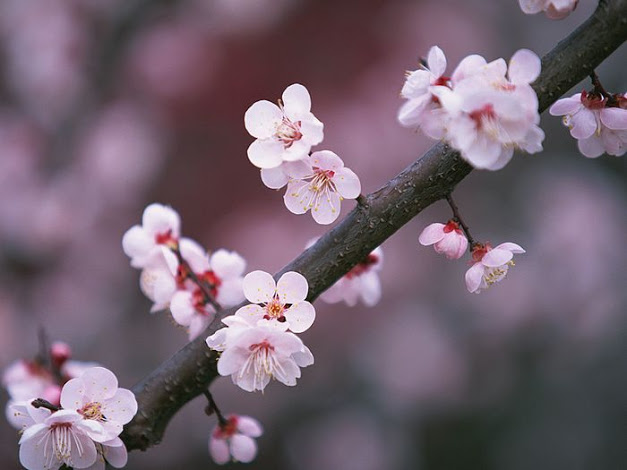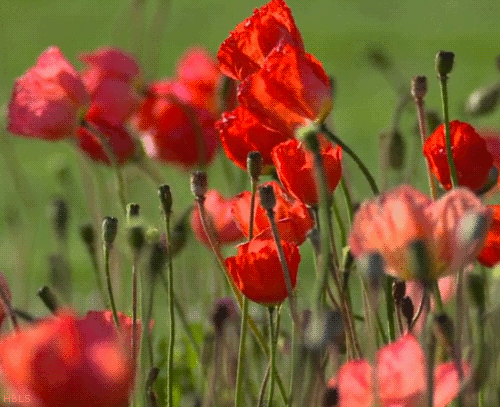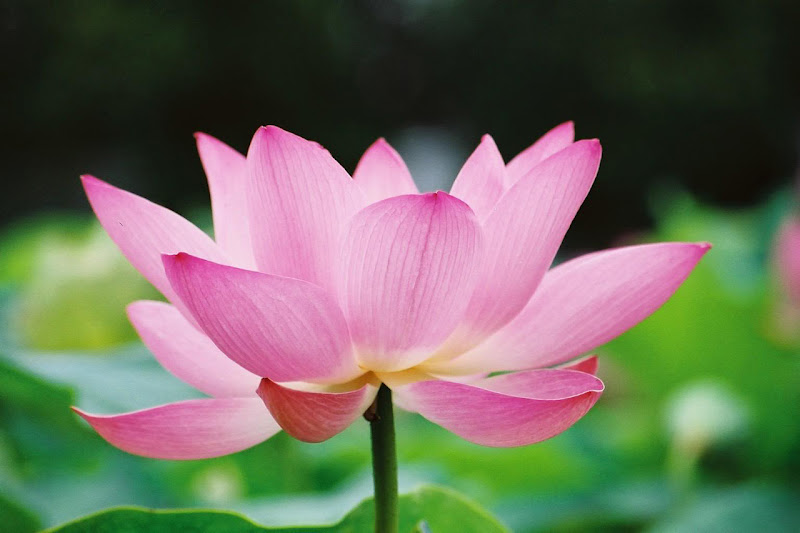-
Comment March 15, 2016
-
New light rays will appear
Comment March 15, 2016 -
An inspirational life
Comment March 15, 2016 -
The Story of Chattapani, a Lay Disciple
Comment March 15, 2016Verse 51: Just as a beautiful flower, lacking in scent, cannot give the wearer the benefit of its scent, so also, the well-preached words of the Buddha cannot benefit one who does not practise the Dhamma.
Verse 52: Just as a flower, beautiful as well as fragrant, will give the wearer the benefit of its scent, so also, the well-preached words of the Buddha will benefit one who practises the Dhamma.
The Story of Chattapani, a Lay Disciple
While residing at the Jetavana monastery, the Buddha uttered Verses (51) and (52) of this book, with reference to the lay disciple Chattapani and the two queens of King Pasenadi of Kosala.
A lay disciple named Chattapani who was an anagami* lived in Savatthi. On one occasion, Chattapani was with the Buddha at the Jetavana monastery respectfully and attentively listening to a religious discourse, when King Pasenadi also came to the Buddha. Chattapani did not stand up because he thought that by standing up, it might mean that he was paying respect to the king, but not paying due respect to the Buddha. The king took that as an insult and was very much offended. The Buddha knew exactly how the king was feeling; so he spoke in praise of Chattapani, who was well-versed in the Dhamma and had also attained the Anagami Fruition. On hearing this, the king was impressed and favourably inclined towards Chattapani.
When the king next met Chattapani he said, “You are so learned; could you please come to the palace and give lessons of the Dhamma to my two queens?” Chattapani declined but he suggested that the king should request the Buddha to assign a bhikkhu for this purpose. So, the king approached the Buddha in connection with this, and the Buddha directed the Venerable Ananda to go regularly to the palace and teach the Dhamma to Queen Mallika and Queen Vasabhakhattiya. After some time, the Buddha asked the Venerable Ananda about the progress of the two queens. The Venerable Ananda answered that although Mallika was learning the Dhamma seriously, Vasabhakhattiya was not paying proper attention. On hearing this the Buddha said that the Dhamma could be of benefit only to those who learn it seriously with due respect and proper attention and then practise diligently what was taught.
Then the Buddha spoke in verse as follows:
Verse 51: Just as a beautiful flower, lacking in scent, cannot give the wearer the benefit of its scent, so also, the well-preached words of the Buddha cannot benefit one who does not practise the Dhamma.
Verse 52: Just as a flower, beautiful as well as fragrant, will give the wearer the benefit of its scent, so also, the well-pre
Dhammapada Verses 51 and 52
Chattapani upasaka VatthuYathapi ruciram puppham
vannavantam agandhakam
evam subhasita vaca
aphala hoti akubbato.Yathapi ruciram puppham
vannavantam sagandhakam
evam subhasita vaca
saphala hoti kubbato.Source: Tipitaka
-
Due to great compassion, we become fearless
Comment March 15, 2016Some people say that meditating on compassion brings them more suffering and pain, and so it’s difficult to meditate on it. Actually, this is not the case. Due to great compassion, we become fearless. It is only when we do not understand how to meditate on compassion properly that we will have pain. It is also extremely important to realize that we are not meditating on suffering, but on the people who are suffering. This is a key distinction.
Lamp for the path to enlightenment – teachings by the Gyalwang Karmapa: Day three
Link to this article -
A composite of 18 downfalls
Comment March 15, 2016There is a composite of 18 downfalls, which people who wished to take the engaged Bodhisattva vows should study and understand a little.
To praise oneself and criticise others for personal gain
To refuse to give wealth or Dharma out of miserliness
To fail to forgive people who ask for forgiveness
To give up on the and Sangha
To steal offerings
To reject the Dharma
To harm the Sangha in some way
To commit the 5 heinous deeds
To hold a wrong view
To destroy villages, towns etc
To teach emptiness to the untrained
To turn people away from the Dharma
To make people give up pratimoksha discipline
To disparage sravakas and pratyekabuddhas
To lie about realisations
To receive offerings under false pretences
To make harmful rules
To abandon bodhicitta and helping sentient beingsIn the morning people received the aspiration Bodhisattva vows. However, an aspiration doesn’t make things happen. The difference between aspiration bodhicitta and engaged bodhicitta is the difference between someone who wants to do something and someone who does it. Aspiration has to be transformed into action. For example, working to protect the environment saves the lives of many sentient beings. We need to protect the snow mountains so that the snow doesn’t melt and so that all the great rivers of the world can continue to flow. Protecting these rivers will save millions of sentient beings who either live in them or depend on them. It is very important to take action. Quoting from the first line from the Four Immeasurables prayer: May all beings have happiness and the causes of happiness, His Holiness warned that sometimes when we recite this we are merely paying lip service, whereas we should be creating something concrete and helpful.
.
Engaged bodhicitta does not require extreme sacrifices such as cutting off a hand. Such actions have to be practised skillfully, as, for example, in one of the Jataka stories, somebody gives an eye, makes a dedication, and then the eye comes back. Somebody who is highly advanced can only do this. You have to be able to give without any regret. But it is not necessary to go to these extremes: you can make a start in small ways at your own level.We are gathered here in this really holy and sacred place of Bodhgaya. The Buddha foretold that if people in the future, who had not been able to meet him, went on pilgrimage with pure motivation and devotion to places where he had been, it would be the same as meeting him. Our mind is the main thing. Someone said once, “We are so deluded and so ignorant, it is extremely fortunate that I see my lama as a human being, and not as a dog or a donkey.”
We hold our future in our own hands, to use the occasion to create something good for the future, so we should use this opportunity. Sometimes one action can achieve many things.
Lamp for the path to enlightenment – teachings by the Gyalwang Karmapa: Day three
Link to this article -
Do Not Weep
54 March 13, 2016Do not stand at my grave and weep,
I am not there, I do not sleep.
I am a thousand winds that blow.
I am the diamond glint on snow.
I am the sunlight on ripened grain.
I am the gentle autumn rain.When you wake in the morning hush,
I am the swift, uplifting rush
Of quiet birds in circling flight.
I am the soft starlight at night.Do not stand at my grave and weep.
I am not there, I do not sleep.
Do not stand at my grave and cry.
I am not there, I did not die!~Written by Mary Frye
-
Good deeds shine in heaven
98 March 13, 2016In Buddhism, we do not need to pray to the angels to come help us or rescue us when we are facing troubles. Part of the angel’s job is to look after the good people. They look over those who master their words, their thoughts and those who never allow their body to do harm. The angels will come to help these people automatically without them having to say a prayer. Knowing this, we should continue to be kind, help those who need help, do good deeds without expectation… Jendhamuni
-
The true seeker
42 March 13, 2016 -
Set Your Heart
33 March 13, 2016












